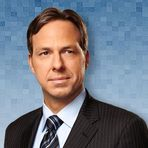The Digital Tightrope: Navigating Free Speech and Responsibility in the Age of Social Media
August 29, 2024, 10:16 pm
In the ever-evolving landscape of social media, the balance between free speech and responsible content moderation is a tightrope walk. Recent events surrounding Mark Zuckerberg and Pavel Durov illustrate the complexities of this challenge. Both figures are at the helm of platforms that wield immense power, yet they face scrutiny for their handling of content moderation. The stakes are high, and the implications ripple through society.
Mark Zuckerberg, the face of Meta, recently found himself in hot water. His admission of pressure from the Biden administration regarding content moderation sparked a media frenzy. Headlines screamed of his supposed capitulation to government demands. But what’s the real story? It’s a tale as old as time: the struggle between political influence and corporate autonomy.
Zuckerberg’s letter to Rep. Jim Jordan was a double-edged sword. On one side, he acknowledged that the White House sought to persuade Meta to take a firmer stance against misinformation, particularly during the COVID-19 pandemic. On the other, he claimed that decisions regarding content moderation were ultimately Meta’s own. This contradiction is the crux of the issue. It’s like trying to hold water in your hands; the more you grasp, the more it slips away.
The media’s reaction was predictable. Many outlets framed Zuckerberg’s comments as a confession of guilt, a sign of weakness in the face of political pressure. Yet, the reality is more nuanced. The White House’s outreach to social media companies is not new. It’s a dance that has been performed many times before, often with little fanfare. The Supreme Court recently ruled that such interactions do not constitute coercion unless there’s evidence of threats or punishment. So, what’s the fuss?
Jim Jordan, a Republican firebrand, has weaponized this narrative. He paints a picture of a government overreach, claiming that the Biden administration is stifling conservative voices. But this framing is misleading. The truth is, misinformation poses a real threat. It’s a virus that spreads faster than any disease, and social media platforms are the breeding grounds. The responsibility to combat this lies not just with the government but with the platforms themselves.
Zuckerberg’s predicament is emblematic of a larger issue. Social media companies are caught in a web of expectations. They must navigate the treacherous waters of free speech while also protecting users from harmful content. It’s a balancing act that often leaves them vulnerable to criticism from all sides. When they act, they’re accused of censorship. When they don’t, they’re blamed for allowing dangerous misinformation to flourish. It’s a no-win situation.
Meanwhile, Pavel Durov, the founder of Telegram, faces his own set of challenges. His recent arrest in France has raised eyebrows and questions. Was he arrested for a lack of moderation on his platform, or are there deeper, more sinister allegations at play? The ambiguity surrounding his arrest is troubling. It’s a reminder that the line between free speech and criminal behavior is often blurred.
Telegram has been a haven for controversial content. It’s a platform where misinformation can thrive, and illegal activities can be organized. Durov’s hands-off approach to moderation has drawn criticism, yet the leap to criminal charges against him raises concerns. Should a CEO be held personally liable for the actions of users on their platform? It’s a slippery slope.
The French police’s claims about Durov’s lack of cooperation in combating child sexual abuse material (CSAM) are serious. However, without clear evidence of his involvement in criminal activities, the charges seem disproportionate. This situation highlights the complexities of intermediary liability. Should platforms be punished for the actions of their users, or should the focus be on the users themselves?
As the digital landscape continues to evolve, the question of responsibility looms large. Social media companies are powerful entities, yet they often operate in a legal gray area. The lack of clear regulations leaves them vulnerable to both government pressure and public backlash. It’s a precarious position, one that requires careful navigation.
In the United States, the First Amendment protects free speech, but it doesn’t absolve platforms from the responsibility of moderating harmful content. The challenge lies in finding a balance. Companies like Meta and Telegram must develop robust moderation policies that protect users while respecting free speech. It’s a daunting task, but one that is essential for the health of our digital society.
The recent events surrounding Zuckerberg and Durov serve as a wake-up call. They remind us that the digital world is not a lawless frontier. It’s a space that requires accountability and responsibility. As users, we must demand better from the platforms we engage with. We must advocate for transparency in moderation practices and hold companies accountable for their actions.
In conclusion, the digital tightrope is a complex and challenging path. As social media continues to shape our world, the balance between free speech and responsibility will remain a contentious issue. Zuckerberg and Durov are just two players in a much larger game. Their experiences highlight the need for clear guidelines and accountability in the digital age. The future of social media depends on it.
Mark Zuckerberg, the face of Meta, recently found himself in hot water. His admission of pressure from the Biden administration regarding content moderation sparked a media frenzy. Headlines screamed of his supposed capitulation to government demands. But what’s the real story? It’s a tale as old as time: the struggle between political influence and corporate autonomy.
Zuckerberg’s letter to Rep. Jim Jordan was a double-edged sword. On one side, he acknowledged that the White House sought to persuade Meta to take a firmer stance against misinformation, particularly during the COVID-19 pandemic. On the other, he claimed that decisions regarding content moderation were ultimately Meta’s own. This contradiction is the crux of the issue. It’s like trying to hold water in your hands; the more you grasp, the more it slips away.
The media’s reaction was predictable. Many outlets framed Zuckerberg’s comments as a confession of guilt, a sign of weakness in the face of political pressure. Yet, the reality is more nuanced. The White House’s outreach to social media companies is not new. It’s a dance that has been performed many times before, often with little fanfare. The Supreme Court recently ruled that such interactions do not constitute coercion unless there’s evidence of threats or punishment. So, what’s the fuss?
Jim Jordan, a Republican firebrand, has weaponized this narrative. He paints a picture of a government overreach, claiming that the Biden administration is stifling conservative voices. But this framing is misleading. The truth is, misinformation poses a real threat. It’s a virus that spreads faster than any disease, and social media platforms are the breeding grounds. The responsibility to combat this lies not just with the government but with the platforms themselves.
Zuckerberg’s predicament is emblematic of a larger issue. Social media companies are caught in a web of expectations. They must navigate the treacherous waters of free speech while also protecting users from harmful content. It’s a balancing act that often leaves them vulnerable to criticism from all sides. When they act, they’re accused of censorship. When they don’t, they’re blamed for allowing dangerous misinformation to flourish. It’s a no-win situation.
Meanwhile, Pavel Durov, the founder of Telegram, faces his own set of challenges. His recent arrest in France has raised eyebrows and questions. Was he arrested for a lack of moderation on his platform, or are there deeper, more sinister allegations at play? The ambiguity surrounding his arrest is troubling. It’s a reminder that the line between free speech and criminal behavior is often blurred.
Telegram has been a haven for controversial content. It’s a platform where misinformation can thrive, and illegal activities can be organized. Durov’s hands-off approach to moderation has drawn criticism, yet the leap to criminal charges against him raises concerns. Should a CEO be held personally liable for the actions of users on their platform? It’s a slippery slope.
The French police’s claims about Durov’s lack of cooperation in combating child sexual abuse material (CSAM) are serious. However, without clear evidence of his involvement in criminal activities, the charges seem disproportionate. This situation highlights the complexities of intermediary liability. Should platforms be punished for the actions of their users, or should the focus be on the users themselves?
As the digital landscape continues to evolve, the question of responsibility looms large. Social media companies are powerful entities, yet they often operate in a legal gray area. The lack of clear regulations leaves them vulnerable to both government pressure and public backlash. It’s a precarious position, one that requires careful navigation.
In the United States, the First Amendment protects free speech, but it doesn’t absolve platforms from the responsibility of moderating harmful content. The challenge lies in finding a balance. Companies like Meta and Telegram must develop robust moderation policies that protect users while respecting free speech. It’s a daunting task, but one that is essential for the health of our digital society.
The recent events surrounding Zuckerberg and Durov serve as a wake-up call. They remind us that the digital world is not a lawless frontier. It’s a space that requires accountability and responsibility. As users, we must demand better from the platforms we engage with. We must advocate for transparency in moderation practices and hold companies accountable for their actions.
In conclusion, the digital tightrope is a complex and challenging path. As social media continues to shape our world, the balance between free speech and responsibility will remain a contentious issue. Zuckerberg and Durov are just two players in a much larger game. Their experiences highlight the need for clear guidelines and accountability in the digital age. The future of social media depends on it.

